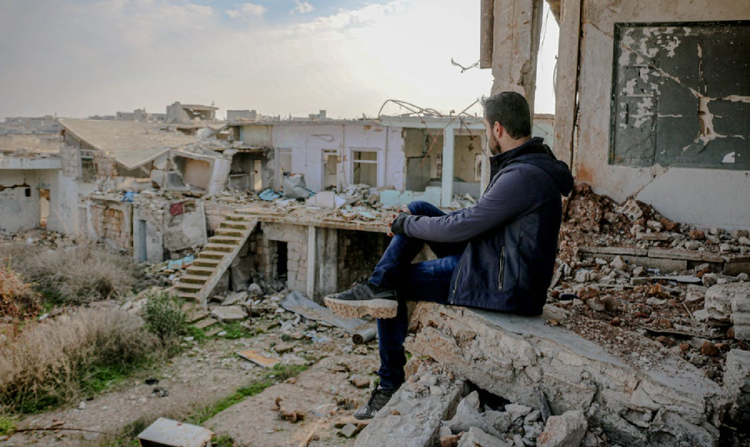America is a nation of individuals. We tend to concentrate more on individual achievements rather than team accomplishments on the societal level. With a few exceptions like sports teams, states, and military organizations, it is generally accepted that people in this society believe in the “every man for himself” philosophy.
As a result, we believe that the individual is more important than the team. If you live in a home with your family, this is not the kind of mindset you need to have in a disaster situation.
When I say disaster, I’m talking about floods, earthquakes, massive civil unrest, or God forbid, an enemy invasion. In the event of a world changing event that’ll force you out of your home, some people want to go lone wolf – one man and his rifle against the world – but unless you know exactly what you’re doing, you’ll be in for a world of hurt.
You are not Davy Crockett or Daniel Boone. The wilderness trapper of yore did not spend his entire life in the woods. These men would spend a few months fur trapping before going back to civilization to sell their goods, and unlike them you can’t make ammo from any metal you find just lying around.
Aside from this, there is the old psychology maxim to remember: no man is an island. Aside from eating, sleeping, and going to the bathroom, social interaction is a basic human need. If a person is denied physical contact, it alters the brain. Studies show that prolonged social isolation can lead to shorter sleep periods and semi-permanent changes to brain physiology.
Even if you choose to stay at home alone, that’s a failure as well. If you live alone already, think about how much stuff you need to do that relies on the services of others. You need to get groceries from a store, you need to get repairs done, you need to dispose of trash – all things which require service workers to help you.
As a lone wolf in the wilderness, you’ll have to tend to your own food, water, clothing, shelter, and maintenance, and sooner or later you’ll need to sleep, and you can’t be on the lookout forever. In the very realistic case of an evacuation order, it would be best to bug out with a group. Whether that’s friends, family, or the people you know from your local bowling club – as long as they’re people you know and trust, you can depend on each other for survival. As Caesar from Planet of the Apes once said, “apes together strong.”
In a group, some members could guard, forage, and rest in shifts. When individuals with diverse skills and knowledge come together, they can create a synergy that surpasses any individual's capabilities. For example, a team member with medical expertise can provide first aid and medical care, while another skilled in construction and carpentry can help secure shelter, reinforce structures, or even create makeshift furniture. This specialization allows for efficient problem-solving, task distribution, and the creation of solutions that may not have been possible for any single individual. What’s more, a team member with knowledge of edible plants and foraging techniques can supplement the group's food supply, while someone with mechanical skills can potentially repair essential tools and equipment.
Disasters can be incredibly stressful and isolating experiences. Having a team to rely on provides emotional support and a sense of community that can significantly boost morale and resilience within the group. Sharing burdens, anxieties, and even victories fosters a sense of camaraderie and belonging. It’s good to be reminded that you’re not alone. Team members can provide a listening ear, offer words of encouragement, and help each other cope with the emotional toll of the disaster. Studies have shown that social support can buffer the negative effects of stress, promote feelings of hope and optimism, and even contribute to faster physical healing.
Additionally, having a designated team member skilled in observation and equipped with a long-range spotting scope such as Firefield’s 20-60x60SE can significantly enhance situational awareness for the entire group. During guard duty, this individual can scan the surrounding area for potential threats, approaching individuals, or signs of danger, providing valuable early warnings and allowing the team to react accordingly. This not only contributes to the team's safety but also frees up others to focus on other crucial tasks like securing shelter, gathering supplies, or tending to the injured.
Imagine you're stuck in a jam-packed escape room with your friends during a disaster. Working together is key to getting out, right? That's what teamwork is like in a real crisis.
By talking openly, everyone shares what they know and what worries them. This helps everyone understand the whole situation better, kind of like getting all the clues in the escape room. With all these different ideas on the table, the team can come up with the best plan, like figuring out the puzzles to escape. Discussing everything also builds trust, so everyone feels invested in making the plan work, just like you'd all be working together to beat the escape room. The more you work as a team, the better your chances of getting through anything, even a disaster! While the "go it alone" mentality might hold a certain romantic appeal, it is far from practical in a disaster scenario. By forming a team, leveraging individual strengths, and fostering open communication, we can not only increase our chances of survival but also build a stronger sense of community and resilience in the face of adversity. Remember, in the words of American author Helen Keller, "Alone we can do so little; together we can do so much."

